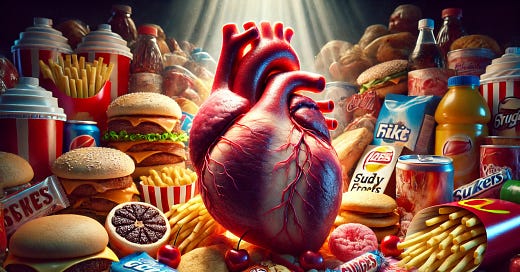Is Ultra-Processed Food Really That Bad For You?
Highly processed foods are here to stay, but that's not such a bad thing.
Ultra-processed foods are a modern invention.
They are here to stay.
But are ultra-processed foods really that bad for you?
The answer is yes.
Kind of.
Let Me Explain.
There is a huge body of evidence that points to the harms of ultra-processed foods on health outcomes.
For every serving of ultra-processed food, the risk of an early death increases by 18%
Keep reading with a 7-day free trial
Subscribe to Dr Paddy Barrett to keep reading this post and get 7 days of free access to the full post archives.



